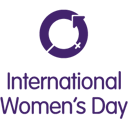Nov 5, 2025
Interview with Jess Vlok, Co-founder & Chief Medical Officer of Celo
Mar 07, 2022 - Blog
To mark International Women's Day 2022, we took a moment to sit down with our Co-founder & Chief Medical Officer, Jess Vlok, to hear about some of her personal experiences as a healthcare professional.
Jess, please tell us briefly about yourself.
"I'm a mum and doctor. I was born in South Africa but grew up in New Zealand. I am currently in specialty training to become a Plastic and Reconstructive surgeon. I enjoy working in the healthcare technology field and trying to develop ways to improve healthcare delivery."
This year's IWD theme is #BreakTheBias. As a healthcare professional, what are some of the gender biases and stereotypes you have faced throughout your career?
"I'm lucky that I haven't had to face too many gender biases or stereotypes in my career. Half of the doctors currently training in Plastic Surgery in New Zealand are women, and I feel well supported. Over the years, however, I have had instances where patients or other staff have questioned my decisions because of my gender, and I think many female doctors are mistaken for more traditionally female healthcare workers, such as nurses. Although infrequent, each episode can slowly chip away at your confidence and make you feel as though perhaps you don't belong in a surgical or medical field. I am very passionate about encouraging other women into medicine, surgery in particular, so hopefully, in some small way, I have shown that women make capable doctors."
What do you think are some of the main challenges women working in healthcare face?
"There can be a misperception that our careers are less important to us than men, especially for women who also want to have children. I was told many times to enjoy my "time off" when I went onto maternity leave, as though giving birth and looking after a baby was somehow a holiday. We also have to fight a little harder than men to be seen as competent."
Do you feel like gender bias in the medical field influenced your career and specialty choices?
"I think it did. Since I was a medical student, I have enjoyed surgery, but surgery is a traditionally masculine field, so I wasn't sure if I would fit into a surgical department. Some surgical fields have welcomed women onto their training programmes and have created a very encouraging working environment. They understand that it is essential to have diversity in a specialty to help serve the needs of our wide variety of patients. Others still have a little way to go, although I know that all specialties are working hard on this."
Are there any women, either in your field or outside of it, who you admire and why?
"I have many female mentors I admire. Sally Langley was one of the first women in New Zealand to specialise in Plastic Surgery, and women such as Sally have paved the way for more junior female surgeons. They have had very successful careers and family lives, and they still have the energy to nurture and encourage junior doctors. In the US, Susan Mackinnon, from St Louis, is another female surgeon I admire for her vast contribution to the field of brachial plexus and peripheral nerve surgery."
Based on your experiences, what advice would you give to women beginning their medical training?
"I would tell them that we need doctors from various backgrounds as we care for patients from all walks of life. Even if you don't fit into the mold of a typical "doctor," you will be able to bring a different perspective to your team, and your patients will benefit from having diverse input. There will be people who might question your path, but there are many women in the medical field who can help support you with your training."
Thank you to Jess for sharing her experiences, continuing to #BreakTheBias and striving to empower other women into a career in medicine.
To find out more about International Women's Day and their mission visit: https://www.internationalwomensday.com/

#BreakTheBias

